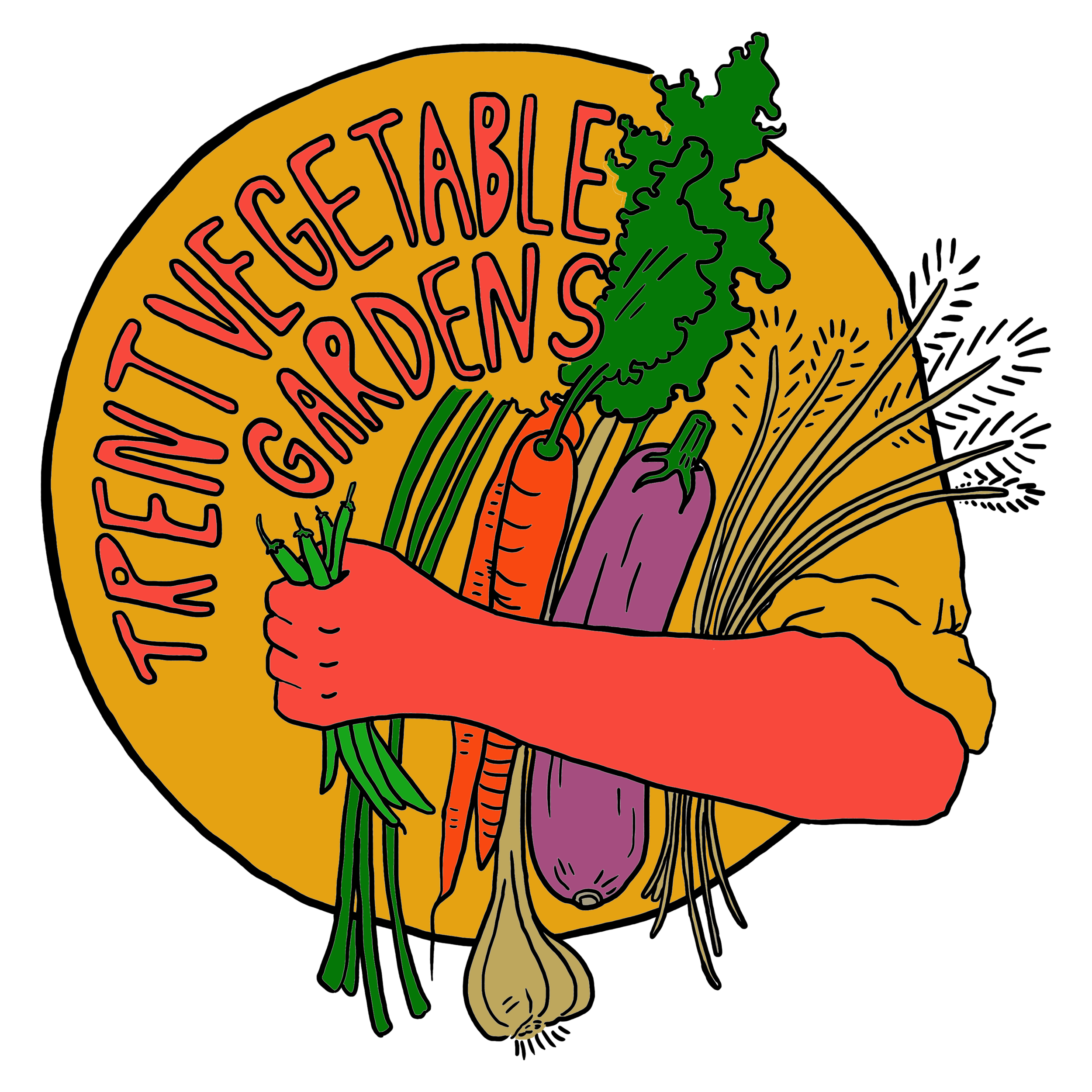Who We Are
The Trent Vegetable Gardens (TVG) is a levy group of Trent University focused on providing agricultural education opportunities to Trent students and Nogojiwanong-Peterborough community members. We operate two gardens on the Trent Campus, The Rooftop Garden located on the Environmental Science Complex and The Field Garden located northeast of the DNA building. The Gardens are organic and low-till, and borrow principles from intensive farming, permaculture systems and Indigenous agricultural methods. The TVG aims to provide the space, tools, and instruction necessary for individuals to grow their own food and works to provide Trent University students with relevant, immersive experiential learning opportunities. We believe that growing food can be a transformative experience, one that connects us to the land, our ecosystems, and our communities. By engaging students and community members in experiential learning and knowledge creation we participate in food sovereignty.
The majority of our harvests are donated to the Seasoned Spoon Cafe, a non-profit cooperative serving Trent students, staff, and faculty. The remaining produce is donated to organizations which serve free meals to the Nogojiwanong-Peterborough community, including Brock Mission, the YES Shelter for Youth and Families and Food Not Bombs Peterborough, and local resources feeding students including the One Stop Chop Food Pantry and the Student Nutrition Program. Staff and Volunteers are welcome and encouraged to take produce home with them.
Guiding Principles
Environmental, Social and Economic Sustainability
We strive to protect the ecological integrity of the soil, water, and air while lobbying against social injustice and providing stable employment
Experiential Learning
We work to provide applied learning opportunities that inspire and empower students and community members which are for-credit or curriculum-linked whenever possible
Innovation
We actively explore and work to address current issues in our local, national, and global food systems by engaging in experimental research
Collaboration
We seek out opportunities for partnerships by nurturing community connections and by supporting inclusivity, diverse knowledge sharing and co-creation

